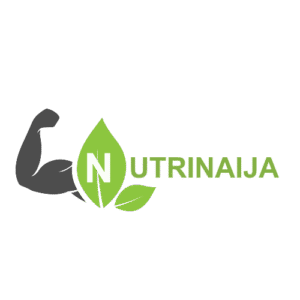 |
| Essential Vitamins and Minerals |
Our body needs a variety of vitamins to reach optimum
performance. On the whole most of us get all the nutrients we need simply from
eating a balanced and varied diet.
As long as we utilize all of the food groups there is no
reason to suppose we are lacking in any essential vitamin or mineral and we
probably don’t need to take supplements.
People who may be deficient in an essential nutrient include
women who are pregnant or breastfeeding, children aged 6 months to 5 years, and
older people aged 65 plus.
Along with other nutrients, such as
proteins, carbohydrates, and dietary fats, vitamins and minerals help our body
to grow and thrive. Each of these 10 essential vitamins and minerals plays a
different role in our overall health. Most of us get what we need in our daily
diets, with different foods providing different vitamins and minerals,
according to the National Institutes of Health’s Dietary Supplements fact
sheets. However, some people may have conditions that require vitamin or
mineral supplementation in addition to what they get through their normal diet.
Top 10 Essential Vitamins and Minerals Your Body Needs
Below is the list of the top 10
essential vitamins and minerals that play a different role in our overall health
Vitamin A
Vitamin A keeps your heart,
lungs, liver, and other organs working properly. Also called beta-carotene, it’s
important for reproductive, vision, and immune system health.
You can get vitamin A from beef
liver, salmon, broccoli, carrots, squash, green leafy vegetables, cantaloupe,
apricots, mangoes, dairy products, and fortified cereals.
Vitamin B
There are eight different essential
B vitamins — B1 (thiamin), B2 (riboflavin), B3 (niacin), B5 (pantothenic
acid), B6 (pyridoxine), B7 (biotin), B9 (folate)
and B12(cobalamin).
They all help convert
carbohydrates, fats, and proteins into energy. Several B vitamins are also
necessary for cell development, growth, and function.
You may need more B vitamins if
you’re elderly, have had gastrointestinal surgery, have a gastrointestinal
disorder, or if you abuse alcohol. Women who are pregnant, breastfeeding, or
plan to become pregnant may need more B vitamins, particularly folate, which
has been shown to prevent birth defects, according to the American
Pregnancy Association. Up to 15 percent of people are deficient in B12. You may
also need more B12 if you have pernicious anemia or are a vegan or vegetarian.
You can get vitamin B from meat,
poultry, fish, organ meats, eggs, legumes, seeds, nuts, whole grains, and
fortified cereals, breads, and pastas.
Vitamin C
Also known as ascorbic
acid, vitamin C boosts the immune system and increases iron
absorption from plant-based foods and supplements. Since it’s an antioxidant,
vitamin C protects our cells from damaging free radicals. It also aids in wound
healing by helping our body produce collagen.
If you smoke, you need 35 more mg
of vitamin C per day than non-smokers because it takes more vitamin C for your
body to repair the cell damage caused by free radicals in tobacco smoke.
You can get vitamin C from citrus
fruits and juices, kiwi fruit, red and green peppers, strawberries, cantaloupe,
broccoli, brussels sprouts, tomatoes, tomato juice, and baked potatoes (cooking
it this way, with the skin on, retains the folate, B6 and vitamin C.)
Vitamin D
Vitamin D builds strong bones
by helping our body absorb calcium from food and supplements. It also boosts
the functioning of the immune system.
People who avoid the sun or use
sunscreen — all smart precautions for skin cancer prevention — may
need supplements, as well as people with a malabsorption
disorder where the body has difficulty absorbing nutrients (such as
Crohn’s or celiac disease).
Vitamin D isn’t found naturally in
many foods. Known as the “sunshine vitamin,” most of the vitamin D our body
gets is absorbed from the sun through our skin. Foods with vitamin D include
salmon, tuna, mackerel, beef liver, egg yolks, mushrooms, and fortified dairy
and nut milk and cereals.
Vitamin E
Vitamin E protects our cells
from free radicals, boosts our immune system, and helps prevent blood clots.
You can get vitamin E from
sunflower, safflower, and wheatgerm oils, sunflower seeds, almonds, peanuts, spinach,
Swiss chard, avocados, and butternut squash.
Vitamin K
Vitamin K is necessary for
blood clotting and healthy bones. You may need more vitamin K if you have had
bariatric surgery to lose weight or have a malabsorption disorder.
You can get vitamin K from spinach,
kale, lettuce, broccoli, soybeans, blueberries, figs, meat, cheese, eggs, and
vegetable oils.
Calcium
Roughly 99 percent
of calcium in the body is found in bones and teeth, where it is
crucial for structural support. The remainder is found in the blood, muscles, and intracellular fluids, where it is a critical part of many metabolic,
neurological, and muscular functions. Postmenopausal women (who have an elevated
risk of osteoporosis) and people who don’t consume dairy products (a primary
source of calcium) are the most likely to require calcium supplements.
You can get calcium
from dairy products (such as milk, cheese, and yogurt), fortified
non-dairy milk (such as almond, soy, and rice kinds of milk), fortified orange juice,
sardines with bones, tofu (if prepared with calcium), collard green, kale, and
broccoli.
Iron
Iron is an essential part of
building red blood cells, specifically hemoglobin, a protein that bonds
with oxygen to oxygen through the blood from the lungs to the cells throughout
your body. Vegetarians need to consume almost twice as much iron daily because
the iron in plant-based food is less available to the body than the iron found
in animal products. Pregnant women and people with iron-deficient anemia may
also need supplements.
You can get iron from meat
(especially red meat and liver), seafood, lentils, beans, tofu, cashews, and
broccoli.
Magnesium
Magnesium plays an important
role in the function of more than 300 enzymes that regulate various processes
in the body, including muscle and nerve function, heart rhythms, and glucose
control. Older adults and people with diabetes may need supplements.
You can get magnesium from almonds,
spinach, cashews, peanuts, beans, potatoes, brown rice, dairy products, oats,
chicken, beef, and broccoli.
Zinc
Zinc is a mineral that plays
an important role in immune function and is essential for normal growth and
development during pregnancy and childhood. Vegetarians may also need
supplements since the zinc found in plant-based foods is less available to the
body than that found in meat and fish.
You can get zinc from red meat,
poultry, seafood (especially oysters, lobster, and clams), dairy products, whole
grains, beans, and nuts.
Reach out to your pharmacist to get
more information on supplements. Some vitamins (such as vitamin E) are
dangerous in high doses, and some may interact negatively with other
medications or medical treatments.
Final Word
The world of vitamins is a vibrant tapestry
woven with fascinating facts, surprising connections, and historical intrigue.
From unlocking the secrets of DNA to harnessing the power of the sun, these
tiny molecules play a starring role in maintaining our health and well-being.
Their unique properties and individual stories remind us of the intricate dance
between science, nature, and the human body.
So, the next time you nourish your body,
remember the remarkable journey of these essential nutrients. Appreciate the
superhero antioxidant vitamin C, bask in the sun-kissed glow of vitamin D, and
savor the colorful vision gifted by vitamin A. Each bite, each swallow, is a
celebration of the intricate web of life that connects us all.
In conclusion, let’s not take our daily dose of
vitamins for granted. They are more than just supplements; they are tiny
marvels of science, whispering fascinating stories about health, history, and
human adventure.
ALSO READ
- 20 Delicious and Healthy Hausa Foods You Should Try Today
- 8 Exciting Health Benefits of Alligator Pepper for Men and Women
- 10 Proven Nigerian Foods That Can Boost Blood Count
- 16 Amazing Health Benefits of Watermelon, Nutrition Facts and Side Effects
- 13 Amazing Health Benefits Of Coconut Water (Must Read)
- Proven Health Benefits of Ukazi Leaf You Should Know
- What are Peas, Health Benefits of Peas, Nutritional Value, and Side Effect
- Promising Health Benefits of Kolanut
- 20 Incredible Health Benefits Of Bananas You Need To Know
- 10 Hidden Benefits of Carrots You Should Know
- Amazing Health Benefits Red Palm Oil You Should Know
- 11 Proven Health Benefits of Egusi Seeds, Nutritional Value and Side Effect






